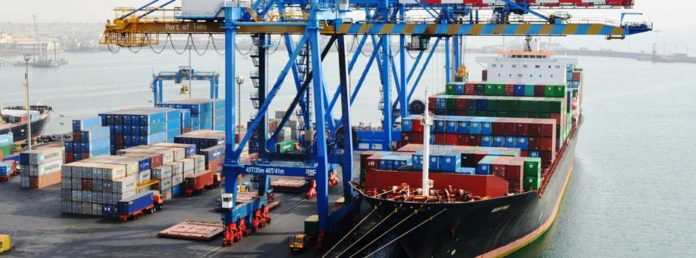The cost of doing business at the country’s ports has reduced significantly from GH₵1,280 to GH₵320 since introducing the Paperless Port regime, Finance Minister Ken Ofori-Atta has told Parliament.
This represents a 75 percent saving for importers since inception of the Paperless Port system in September 2017.
The paperless port policy is aimed at improving the clearance procedures at the country’s ports by eliminating delays as well as improving port efficiency for accelerated national development.
Appearing before parliament to answer a question posed by the Member of Parliament for Adaklu, Hon. Kwame Agbodza, on whether introduction of the paperless port has increased cost of doing business at the ports, the minister indicated that the initiative has rather decreased the cost of doing business.
According to the minister, his ministry in collaboration with Ghana Revenue Authority (GRA), Ghana Ports and Harbours Authority and Ghana Freight Forwarders Association conducted a comparative analysis on the cost of doing business in pre- and post-paperless regimes at the ports.
“The results showed that the cost components of doing business at the country’s ports have reduced from 7 to 3 cost components; this has subsequently reduced the total costs from GH₵1,280 to GH₵320.
This means that the paperless system reduced cost of doing business at the ports by GH₵960 representing 75percent. Hence, importers are now making savings of 75percent as a result of the implementation of the paperless system.
The introduction of the ‘Paperless Port’ has not increased the cost of doing business at the ports but rather decreased the cost drastically,” he said.
The things that accounted for the high cost of doing business at the ports before the paperless system were: cost of obtaining CCVR, compliance, regulatory agencies, shipping line demurrage, GPHA rent/overstayed, and printing of declarations among others.
The paperless port reforms, which took-off successfully on September 1, 2017, are aimed at reducing the cost of doing business, enhancing transparency and improving the country’s trade competitiveness.
The rolling-out of paperless ports followed Vice-President Dr. Mahamudu Bawumia’s directive during a Port Efficiency Conference in Accra.
Dr. Bawumia’s three-point directive included: the removal of all Customs barriers on the country’s transit corridor; a joint inspection by all regulatory agencies; and 100 percent paperless transactions at the ports from September 1, 2017.
This was followed up with an official unveilling of a road map for the paperless process to guide operators and agencies in the port clearance chain – with WestBlue Consulting and GCNet as the IT solutions providers.
Source: B&FT Online





